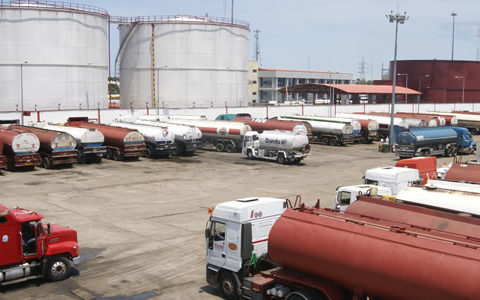Paragraph 1: The Nigerian government’s recent directive to prioritize local procurement over foreign goods and services has sparked debate regarding its potential impact on the petroleum sector. Under President Bola Tinubu’s “Nigeria First Policy,” government agencies are now required to obtain waivers from the Bureau of Public Procurement before procuring foreign goods or services if local alternatives exist. This policy aims to bolster domestic industries and reduce reliance on imports. However, independent petroleum marketers and retailers have raised concerns about the feasibility of extending this ban to fuel imports, given Nigeria’s current refining capacity.
Paragraph 2: The Independent Petroleum Marketers Association of Nigeria (IPMAN) and the Petroleum Products Retail Outlet Owners Association of Nigeria (PETROAN) argue that a premature ban on fuel imports could lead to fuel scarcity and price hikes. They emphasize that while the Dangote Refinery and other smaller refineries have contributed to increased domestic production, their combined output is insufficient to meet the nation’s daily fuel consumption. IPMAN’s National Vice President, Hammed Fashola, stressed the need to prioritize fuel security and affordability, advocating for a cautious approach to import restrictions until local refining capacity can demonstrably satisfy national demand.
Paragraph 3: While acknowledging the potential of the Dangote Refinery and other domestic refineries to meet local fuel needs, IPMAN maintains that their capacity must be thoroughly tested before import bans are implemented. Fashola pointed out that Dangote Refinery has existing international commitments and supply contracts that must be considered. He also highlighted the uncertainty surrounding the current output of NNPC refineries. IPMAN emphasizes the importance of avoiding sudden disruptions to the fuel supply chain, as imported fuels currently fulfill a significant portion of national demand. A hasty ban, they argue, could trigger price increases and potential scarcity.
Paragraph 4: PETROAN echoes IPMAN’s concerns, cautioning that a ban on fuel imports could lead to shortages and profiteering. PETROAN’s National President, Billy Gillis-Harry, acknowledged the positive intentions of the “Nigeria First Policy” but stressed the need for careful implementation to avoid unintended consequences, particularly in the petroleum sector where local refining capacity is still under development. PETROAN emphasizes the importance of maintaining energy security and ensuring the availability and affordability of petroleum products, which are crucial for the Nigerian economy and the well-being of its citizens.
Paragraph 5: PETROAN advocates for increased investment in local refining infrastructure and support for domestic industries to enhance their competitiveness. While supporting the government’s efforts to strengthen the domestic economy and promote local content, PETROAN advises a cautious approach to avoid potential economic shocks. They recommend exempting essential goods, including petroleum products, pharmaceuticals, and other high-demand items, from the import ban or providing waivers to ensure their continuous availability. Gillis-Harry cited examples from other countries, including the United States, where targeted tariffs rather than blanket bans are employed, allowing for flexibility and exemptions for critical goods.
Paragraph 6: The debate over fuel import bans highlights the complex interplay between promoting local industries and ensuring essential goods’ availability and affordability. While the “Nigeria First Policy” has the potential to stimulate domestic production and reduce reliance on foreign goods, its implementation in the petroleum sector requires careful consideration of Nigeria’s current refining capacity and the potential for disruptions to fuel supply. A balanced approach that prioritizes both national economic interests and the needs of Nigerian consumers is essential to avoid unintended negative consequences such as fuel scarcity, price hikes, and inflationary pressures. The government must carefully assess the capacity of local refineries and implement a phased approach that allows for a smooth transition towards greater self-sufficiency in fuel production.














